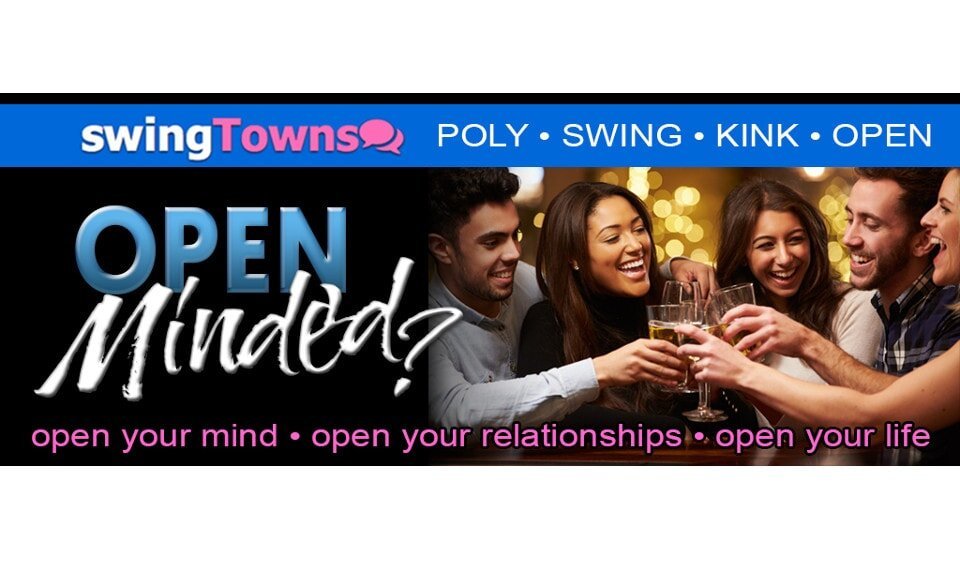Open Relationships 101 - How to Tell If Non-Monogamy is Right For You
So, you think you want to try an open relationship. With non-monogamy slowly becoming mainstream, more people than ever are taking that leap. They’re tossing aside arbitrary societal rules about what relationships “should” be and uninstalling popular dating apps in favor of more ~alternative~ ones. The western world of sex and romance is changing for the better as we start to embrace new lifestyles and challenge the status quo.
It’s about damn time.
That said, having an open relationship can be pretty difficult to navigate. In a heteronormative society, love and sex are reserved for the monogamous male and female. Breaking down that kind of archaic narrative requires exploring uncharted territory, oftentimes without a roadmap. Luckily, the internet is changing that. In recent years, there has been an explosion of resources for the ethically non-monogamous in the form of podcasts, videos, blogs, books, and more. By tapping a few keys, you can learn about everything from polyamory and open relationships to swinging, fetishes, BDSM, and more. You can even join communities of like-minded people on a popular site like SwingTowns so that regardless of how long it takes for the rest of the world to catch up, you can get all the support you need to live out your hottest sexual fantasies and wildest romantic dreams. It all starts with knowing what you want.
Here’s how to tell if an open relationship is right for you.
Having romantic and sexual attraction to multiple people feels natural to you
The difference between someone who would enjoy an open relationship vs. not is how much you enjoy the possibilities that engaging in more than one relationship would bring you. Does imagining the thrill of a new relationship (called NRE or “new relationship energy”) make you swim with desire? Do you have trouble picturing yourself spending your entire life with just one person? If you answer “yes” to these questions, that’s a good sign that non-monogamy is something worth exploring.
It’s normal to be interested in people that aren’t your partner even if you are in a perfectly healthy relationship. Our culture can make it seem like this desire makes you a bad partner, or that you don’t really love your significant other, but that’s just not true. Monogamy is something we constructed as an ideal--something that is historically embedded in religion and politics, and not necessarily a natural biological instinct. You can love your partner to death and still want more, and it says absolutely zero about you.
The important thing is how you act on those desires, which brings us to #2.
2. You’re happy with your current relationship.
It’s important to remember that every ethical relationship--romantic, sexual, or otherwise--will come with a set of rules. Those rules should be based on each involved person’s desires, comfort levels, and boundaries. This is true for monogamous relationships as well as non-monogamous relationships. It doesn’t matter who you are involved with romantically, sexually, or even platonically--for a relationship to be ethical means to love, respect, and adhere to one another’s needs. It also means being honest. Dating multiple people without the awareness and consent of your partners is called cheating, and it’s not fair to anyone. Having a successful open relationship means understanding these things.
Unfortunately, not everyone does.
Many couples will try to open up their relationship as a way to “fix” their problems (things like boredom, infidelity, jealousy, etc). More often than not, these problems are only exacerbated by non-monogamy, as adding people to the mix can further complicate things. That’s not to say couples with relationship challenges should never attempt non-monogamy, but it’s certainly not a solution. The most successful couples go into it with a solid foundation and find that the experience brings them closer together, not further apart.
That said, you can establish healthy boundaries, be firm about them, and still experience feelings of jealousy, fear, guilt, etc. This is normal. It’s part of the un-learning process. We’ve had a lot of ideas about sex and romance ingrained in us from the media, culture, and the ways we were raised as individuals. Breaking that down often comes with some icky feelings. The important thing is analyzing the feelings as they arise and determining whether they mean something (“I really don’t enjoy this”) so you can adjust your boundaries and pace, or whether you need to gently guide yourself through some B.S. (“I really enjoy this, but I’ve been told I shouldn’t enjoy this, so I’m experiencing some discomfort and that’s okay”).
Bottom line: ethical non-monogamy can add a lot to an already happy relationship, but it is not going to solve your problems.
3. You can make time for it.
Little caveat here. Being involved with more than one person, even casually, can get time-consuming if you’re not careful. If you’re in at least one serious relationship, you’ll have to make time for your partner(s) so they don’t feel neglected. That means having a calendar and using it too! Of course, you can’t forget to make time for yourself. Keep up with solo hobbies that are important to you and practice self-care. Remember: the relationship you have with yourself is just as important as any other—and in some cases, more-so! Don’t neglect yourself.
If this all sounds like you, get excited! You might be fit for an open relationship. Meeting these three criteria is a really good starting point that should hopefully point you in the right direction. To learn more, dive into these resources, or take the plunge and sign up for your FREE membership at SwingTowns.com: the World’s Friendliest Dating Site (home to millions of members all over the world)!


